

Role play is a common activity at the nursery. Here is a recent scene we captured one day:

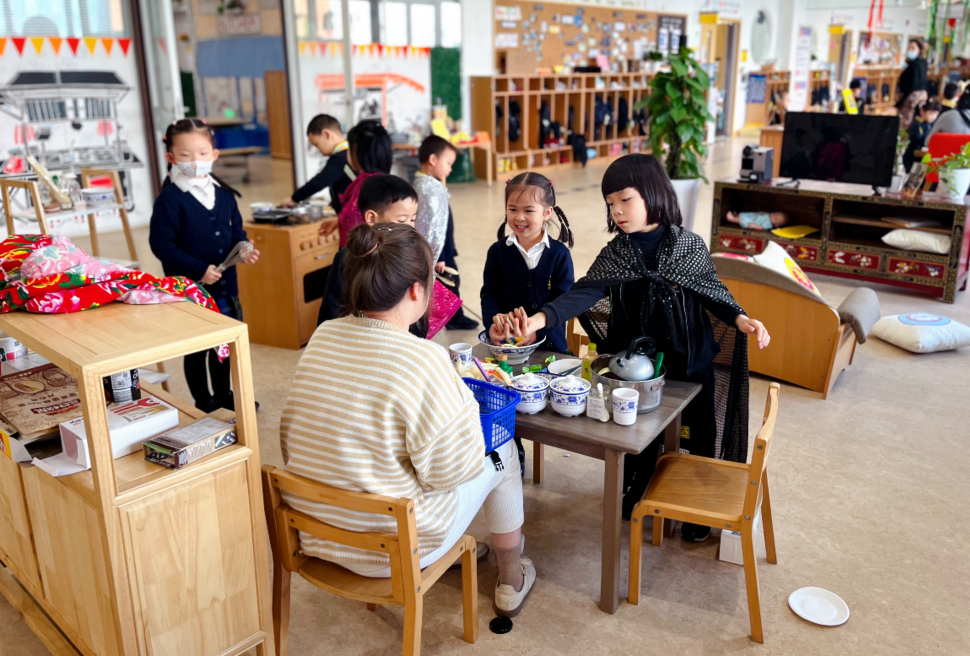
The children and teachers were pretending to run a snack bar.
The children and teachers were pretending to run a snack bar. The teacher ordered vegetables, and the children told her which vegetables were available that day. She also ordered four slices of meat and an odd number of dumplings. When the child was counting, the teacher asked a silent observer to help the child.
After the teacher finished her meal, she said the meat was a bit salty. The boy next to her picked up the teapot and pour some water for her.
Part.1
The power of role-play
This may look like children playing make-believe, but important learning is happening here. Through this activity, children expand their food vocabulary in English and Chinese as they build up their numeracy skills. Moreover, they build social skills as they put empathy and kindness into practice. These are all important developmental goals for Early Years children.
Children more easily grasp knowledge through play activities like this. It is active, rather than passive, learning. Our pupils are fully engaged and motivated. They learn observation, imagination and critical thinking through actual experience, not in the abstract. It is why role-play occurs daily in our classrooms.
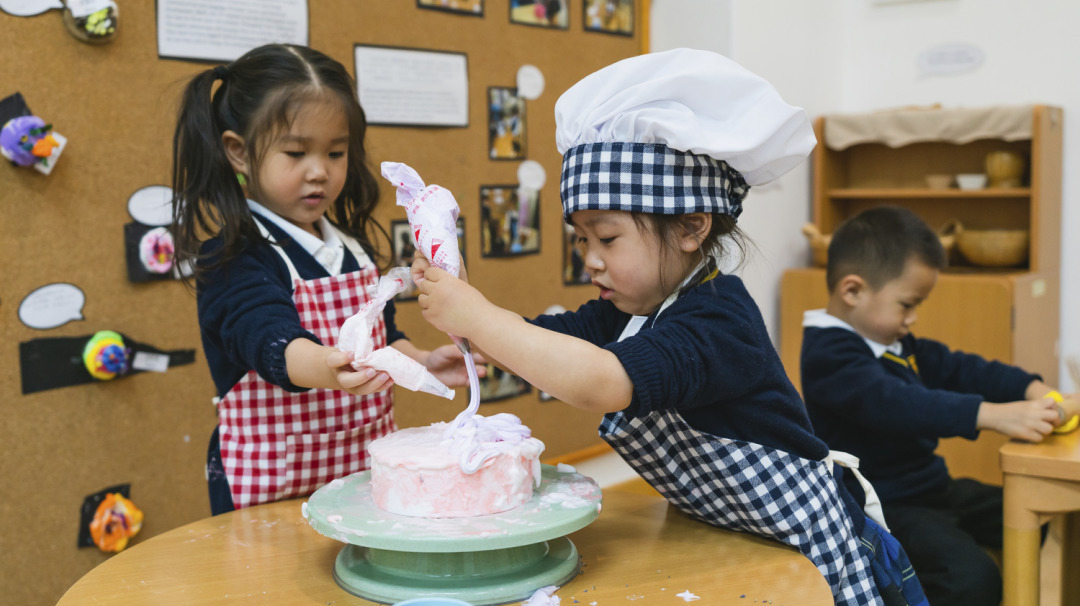
In her book The Natural Laws of Children, French educator and author Céline Alvarez points out that a person's language skills, logical thinking, perception, creative and imaginative abilities and emotions are already present in early childhood, and the right guidance will motivate the development of these potentials between the ages 2 and 6.
At Hiba, our teachers observe and support each child's unique potential, stimulate their curiosity, encourage their practice and create a space for them to think independently.
This builds lifelong learning habits.
Part.2
Activity Corners
When observing nursery’s environment creation, you will find that teaching appliance and toys are visible everywhere for children to use, play and create, especially in activity corners where a variety of hands-on materials areavailable for children to choose.
▲Our nursery environment is full of a variety of toys and other materials tofacilitate a tactile, hands-on learning experience
Let’s see a few snapshots of our pupils in action.
EY3 activity corner
In our EY3 activity corner, the children can experience the process of washing anddrying clothes.
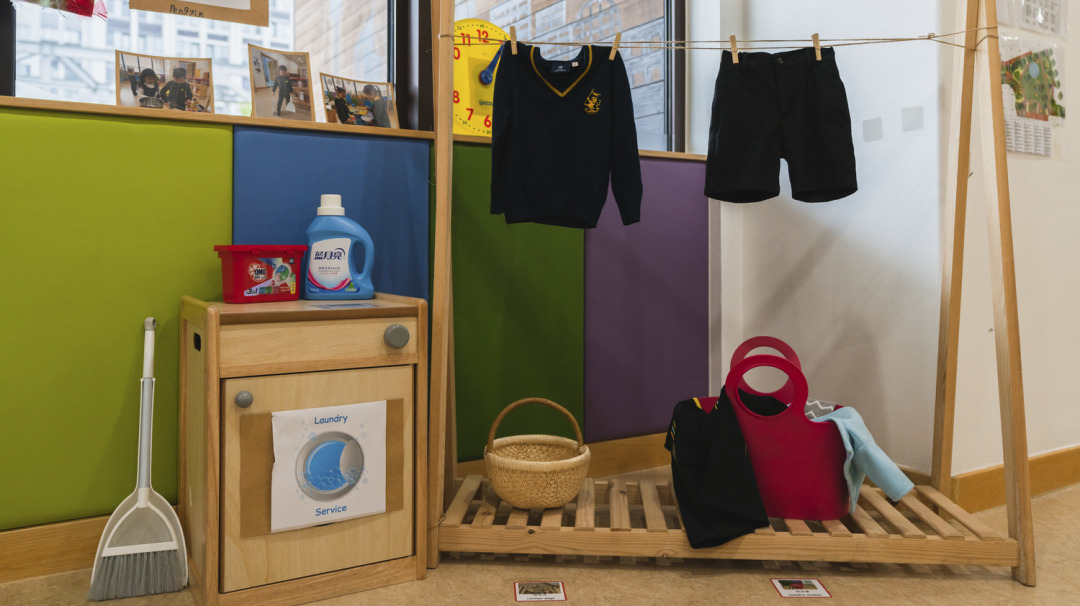
They also can experience how to build a house to rent it out in a monopoly game; some children even can design their own monopoly game with small props and tracks and share it with teacher.
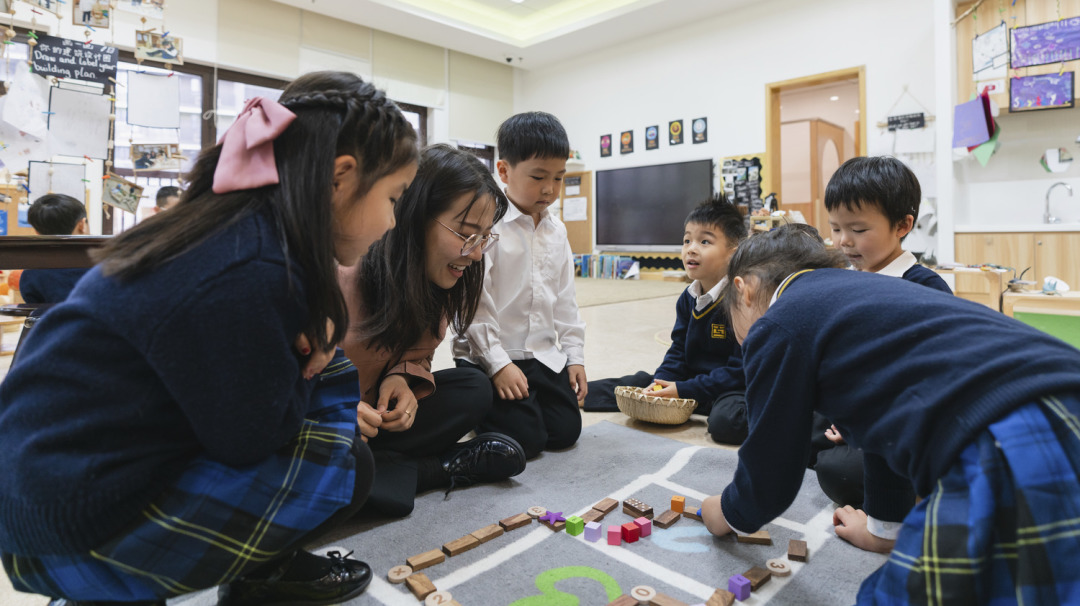
EY4 activity corner
In EY4, each child has a virtual wallet with coins of different values. With this play currency, they can purchase snacks.
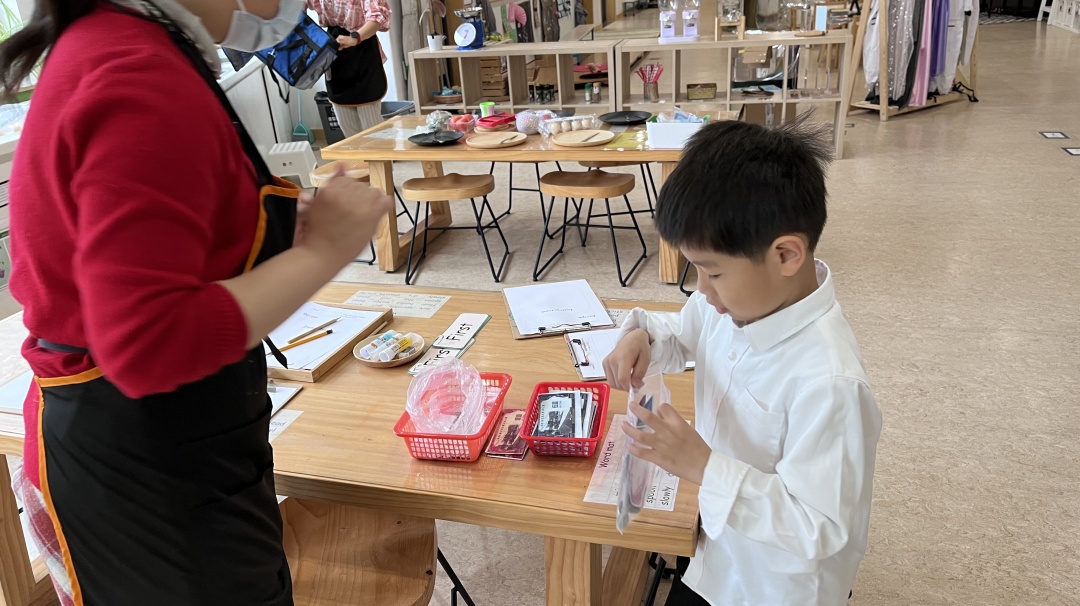
When exploring the theme of space travel, our EY4 children plan what they should pack for their trip.
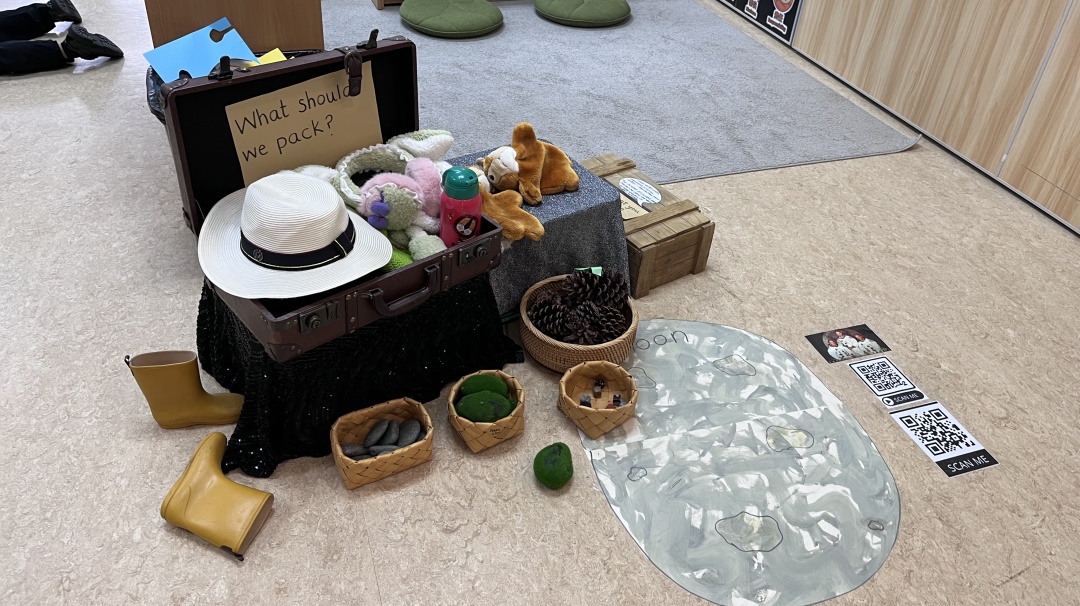
These basic life skills are embedded in their everyday play at the nursery, which our teachers purposefully design. These may seem like games but they are powerful engines of development. They teach our pupils self-sufficiency and autonomy.
Children of different age groups have different cognitive and developmental patterns. Different personalities bring different preferences. Teachers support children's learning and create different environments and activities to help them take charge of their own learning.

Through activities that are closely linked to life itself, our pupils integrate learning into their lives outside of the nursery. In the process, they become independent thinkers and problem solvers.
What kind of skills do we teach Hiba Nursery pupils?
Everything from maths computation to clear communication as well the soft skills needed to navigate life.
The purpose of education, after all, is to learn how to live, and life itself is an education.